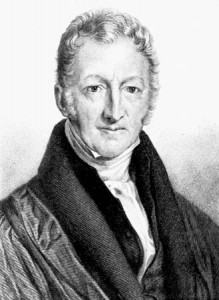Comte de Saint-Simon disparaged laissez-faire industry in “The Incoherence and Disorder of Industry”, saying that capitalists are not concerned with the well being of society and are solely individuals looking to profit. This leads to men emphasizing their cunning and shrewdness and leading them to be “lost to humanity”. ((Comte de Saint-Simon, The Incoherence and Disorder of Industry)) Marx took an equally negative stance on capitalism in “Estranged Labor” although he chose to focus on the worker and not the capitalist. Marx argued that every step of the production process estranges the worker from the product they are creating, as the more the worker produces, the less he is able to possess. The worker is also estranged from the process of production, as Marx writes, “labor produces for the rich wonderful things – but for the worker it produces privation”. ((Karl Marx, Estranged Labor 1844. https://www.marxists.org/archive/marx/works/1844/manuscripts/labour.htm)) Workers are estranged through the process of production as they are not affirmed by their work and they do not enjoy it. Marx wrote that as men are alienated from their work their labor becomes forced labor, therefore workers only feel completely free when performing animal functions, such as eating, drinking and procreating.
Marx and Saint-Simon highlight similar issues with how capitalism impacts interpersonal relationships. Saint-Simon points out that men are inherently competitive and that this leads them to enter a potentially lucrative industry, creating a few successful men and many who are completely ruined. In a similar vein, Marx discusses the estrangement between men as those who produce are under the dominion of those who own the means of production. This creates a dichotomy between the ‘haves’ and ‘have nots’ in terms of who wields the most influence in society and has the most opportunity.
Marx and Saint-Simon were both writing near the nineteenth century when the Industrial Revolution was impacting many different areas. Many of the problems they identified with capitalism are still present in society today, is there any way to correct for these issues or reduce their impact? Is today’s society reducing the divisions between workers and owners or are the divisions growing?


